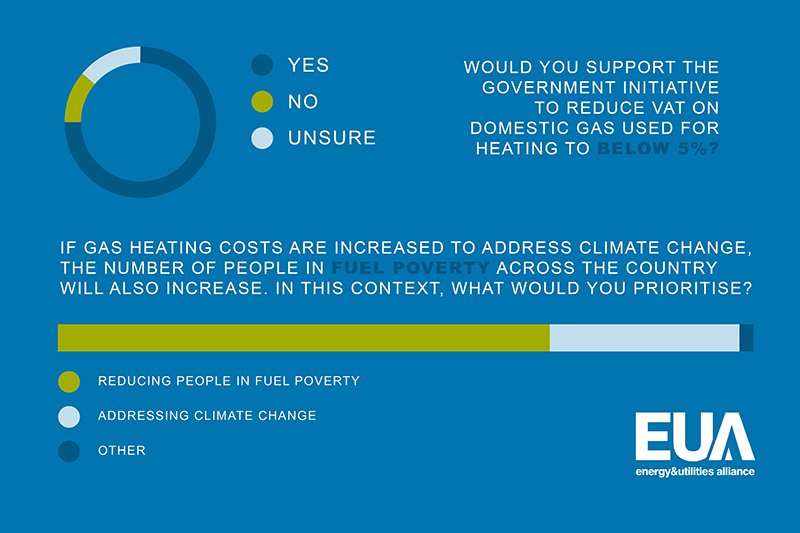
The government has been warned that it faces a major public backlash if it attempts to use an increase in domestic gas prices as a way of forcing homeowners to buy low carbon heating appliances.
A new survey of homeowners has found that the public is adamantly opposed to this approach, with predictions of a public backlash made by some senior politicians seeming highly likely.
It has found that 40% of voters would be ‘less likely to vote’ for a Government that announced an increase in the price of gas as a way of encouraging people to switch from boiler to heat pumps.
In an added twist, 76% would support reducing VAT on domestic gas, something that was promised by senior ministers during the Brexit campaign, as European Union rules on VAT no longer apply.
Mike Foster, Chief Executive of the Energy and Utilities Alliance, who commissioned the online research of 2,000 homeowners, says a move to increase levies on the price of gas would be a kick in the teeth of hard-pressed consumers who are still smarting over the breach of trust around VAT not being cut.
“During the referendum campaign people were promised that, if we came out of Europe, we would be able to set our own levels of VAT on domestic fuel and that this would allow the government to reduce VAT and effectively cut fuel bills. They have been let down.
“I would remind the government that gas users are also voters. 21 million households on the gas grid, the majority of which are multi-occupancy, equates to a huge number of voters who are the recipients of heat and hot water from a boiler. The reaction from the public when the energy companies put up their prices should act as a warning to Ministers.”
The research also reveals that whilst the public supports efforts to combat climate change, nearly three quarters would prioritise fuel poverty over action on climate change.
“I believe the public supports efforts to deal with the climate crisis but not at the expense of plunging more people into fuel poverty. If the government does force up the price of gas, it is vital that the fuel poor are supported. And if a carbon levy is placed on gas, let’s ring-fence the proceeds to make sure they are used to incentivise the investment in the hydrogen economy the government is keen to talk about.”
Mr Foster concludes: “Yes, we have to deal with the climate emergency, but the public wants a thought-through strategy not a knee-jerk tweaking of gas prices that will impact the poorest in society and do nothing to encourage the uptake of low carbon heating technologies.”













